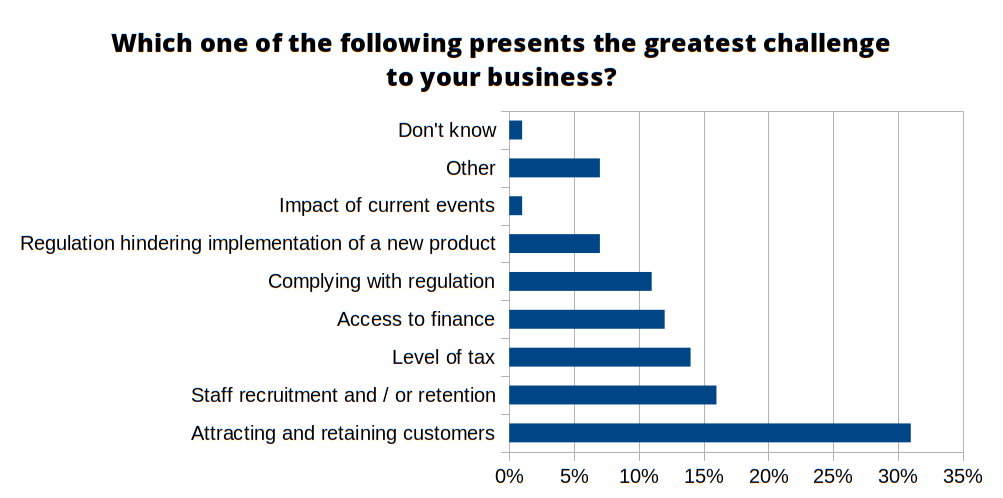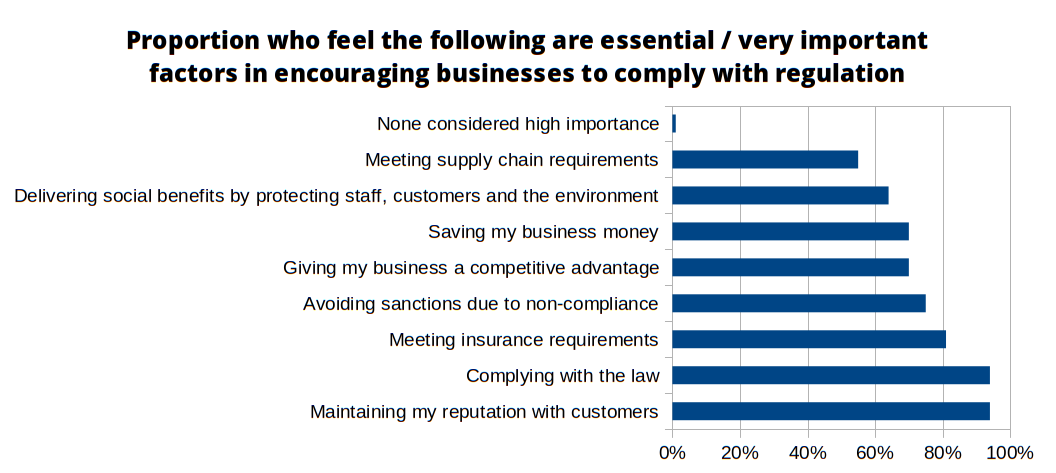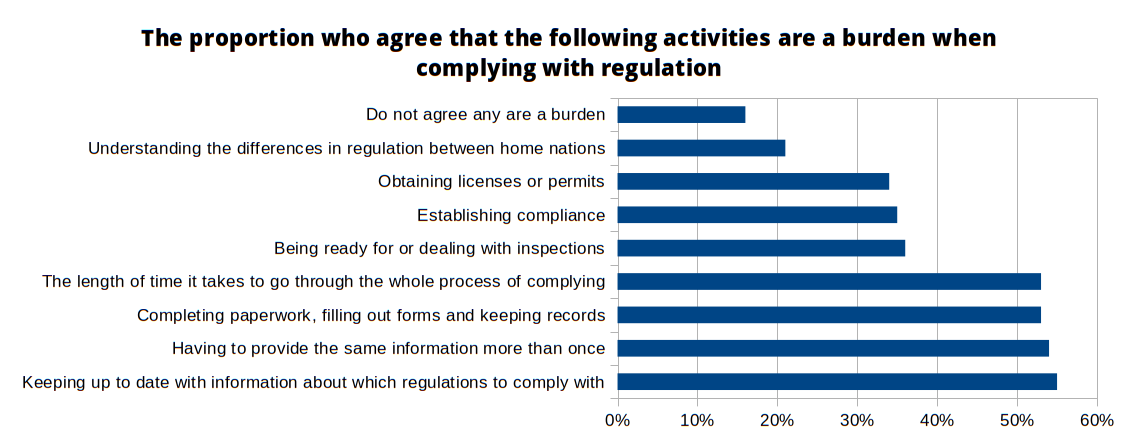Business regulation - it's quality not quantity

Earlier this month the UK Government announced that the threshold to be defined as an SME for the application of regulations would be increased from 250 to 500 employees. This is welcome news and is estimated will free 40,000 UK businesses from certain regulations. What I found interesting was the Business Perceptions Survey 2020 that the Government cited in support of the changes. It appears that business attitudes to regulation are more nuanced and generally not as negative as you might expect.
What are the challenges businesses face?

In fact, the industry sector most likely to say that complying with regulations was their biggest challenge was Finance, and after numerous mis-selling and fraud scandals I don't hear a lot of calls for deregulation of financial services.
Reasons for compliance

When it comes to the reasons why businesses think it's important to comply with regulations, complying with the law of course ranks highly, but equal with maintaining your reputation with customers - businesses care about reputation and don't want to be seen as cowboys. However 70% quote 'saving my business money' and 'giving my business a competitive advantage', and 64% say 'delivering social benefits by protecting staff, customers and the environment'. This shows that businesses see positives in regulation, particularly on a level playing field.
How does regulation create a burden?


The survey shows that business generally doesn't object to regulation in principle, and often sees advantage in it. But it is equally clear that the Government could do a better job of implementation by improving consultation and communication, and by coordinating between regulators to reduce duplication.
